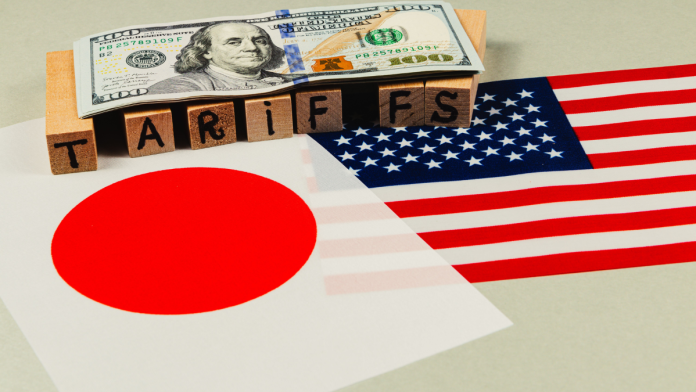U.S. President Donald Trump has announced a major change in tariffs on Japanese automobiles. The tariff rate has been reduced to 15%, down from the earlier 27.5%. This decision was made official after Trump signed an order to bring the changes into effect.
The new tariff rate will begin seven days after the order is officially published. Importantly, the 15% rate will not be added on top of existing higher tariffs that already apply to certain products, such as beef. Products that had tariffs below 15% will now be adjusted to the new 15% rate. The relief will also apply retroactively, starting from August 7.
Commercial airplanes and their parts will face no tariffs at all under this agreement. Japan’s chief trade negotiator Ryosei Akazawa welcomed the announcement, calling it a steady implementation of the agreement reached earlier this summer.
$550 Billion Investment in U.S. Projects
Alongside the tariff cut, Japan has also confirmed plans to invest a massive $550 billion in projects across the United States. These investments will be directed toward key industries such as semiconductors, metals, energy, shipbuilding, and pharmaceuticals.
India joins Malabar naval drill with US Japan and Australia in Guam as tariff issues continue
The funding will come in the form of equity, loans, and guarantees from Japan’s government-backed banks. Both governments signed a memorandum detailing how the investments will be carried out. The projects are scheduled to be completed by January 2029, the end of Trump’s presidential term.
The deal also mentions how the financial benefits will be shared. Half of the free cash flows from these projects will be split equally between both countries until the allocated target is met. After that, 90% of the gains will go to the United States.
In addition to this, Japan agreed to make more purchases of U.S. agricultural products. This includes rice, corn, soybeans, fertilizer, and bioethanol. The total value of these agricultural imports is expected to reach $8 billion every year.
U.S. Commerce Secretary Howard Lutnick praised the signing of the order, saying it put into effect a historic agreement between the two nations.
Billions in Trade Deals and Purchases
The agreement goes beyond automobiles and agriculture. Japan has committed to buying 100 airplanes from Boeing, the American aerospace giant. It will also boost its purchases of U.S. defense equipment by billions of dollars. Talks are underway on a possible new deal for liquefied natural gas from Alaska.
The joint statement signed by both sides also guarantees that Japan will always receive the lowest tariff rates on sensitive products like microchips and medicines, compared with other U.S. trade partners.
🇯🇵 US tariffs on Japan triggered silent trade war — and Tokyo’s quiet resistance reshaped policy
Two-way trade between the two nations reached nearly $230 billion in 2024. Japan recorded a surplus of about $70 billion in that trade. The tariff cuts are expected to give Japanese exporters some breathing room after a tough period.
Impact on Automakers and Politics
Japanese automakers have faced big losses due to earlier tariffs. Toyota, one of the country’s largest auto companies, had already estimated close to $10 billion in lost profits. Despite producing most of its U.S. automobiles in North America, the uncertainty around tariffs has made planning difficult.
The latest order has given much-needed clarity to the Japanese auto industry. Shares of major automakers such as Toyota rose slightly following the announcement. On the other hand, shares of South Korea’s Hyundai Motor and Kia fell, as South Korea is still waiting for a similar executive order to lower U.S. tariffs on its own automobile exports.
The U.S. government has made it clear that it may modify the order if Japan fails to keep its promises under the agreement.
The signing of this trade deal also comes at a politically sensitive moment for Japan. Prime Minister Shigeru Ishiba is under pressure at home after his coalition lost its majority in both houses of parliament. Analysts such as David Boling from Eurasia Group note that while the deal gives Ishiba an achievement to point to, internal party backlash may still threaten his leadership.


